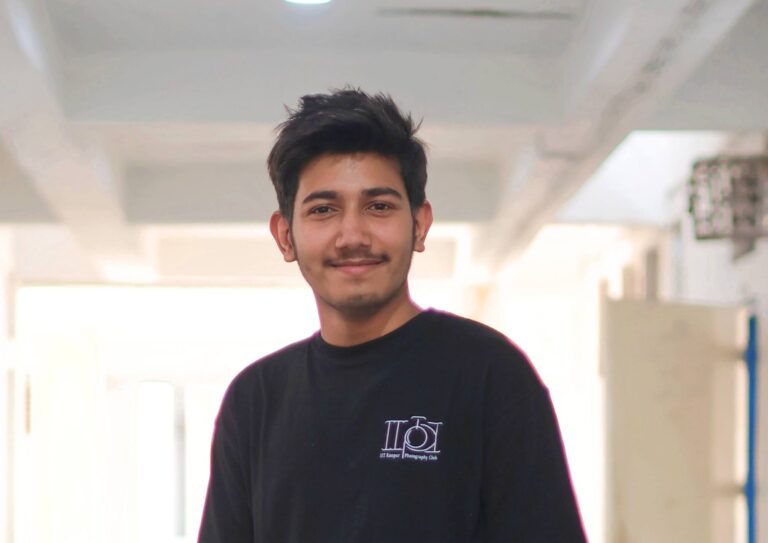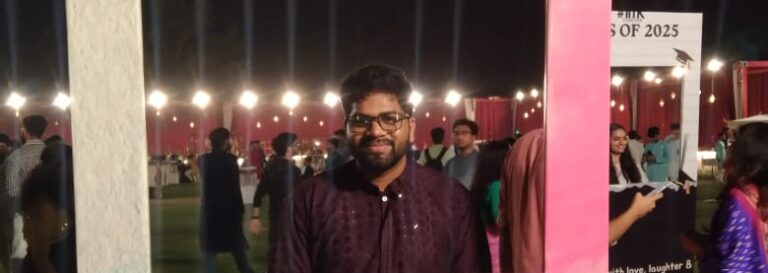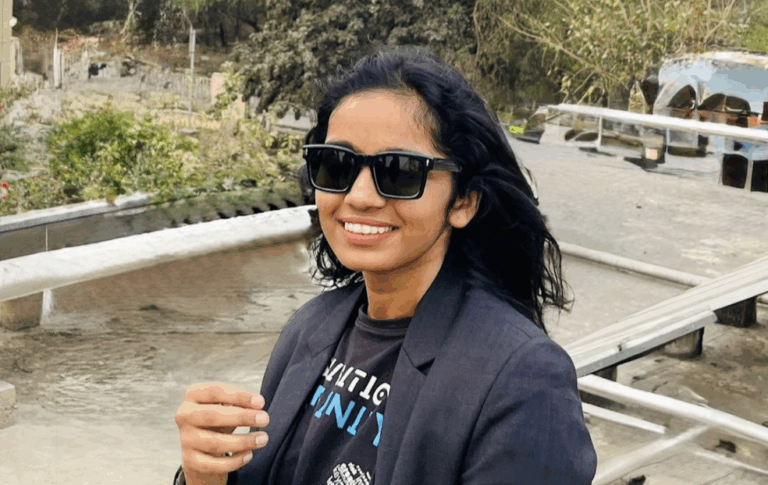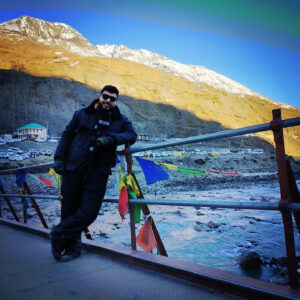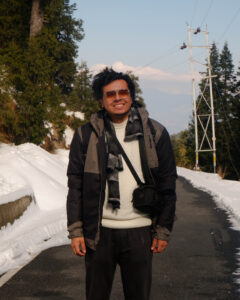Rahul Sethi is a graduating Y19 student from the Department of Mathematics. In the sixth edition of As We Leave, he reflects on the invaluable lessons he learned through a myriad of transformative experiences during his time at IITK.
Disclaimer:- The views presented below are the author’s own and are not in any manner representative of the views of Vox Populi as a body or IIT Kanpur in general. This is an informal account of the author’s experiences at IIT-K.
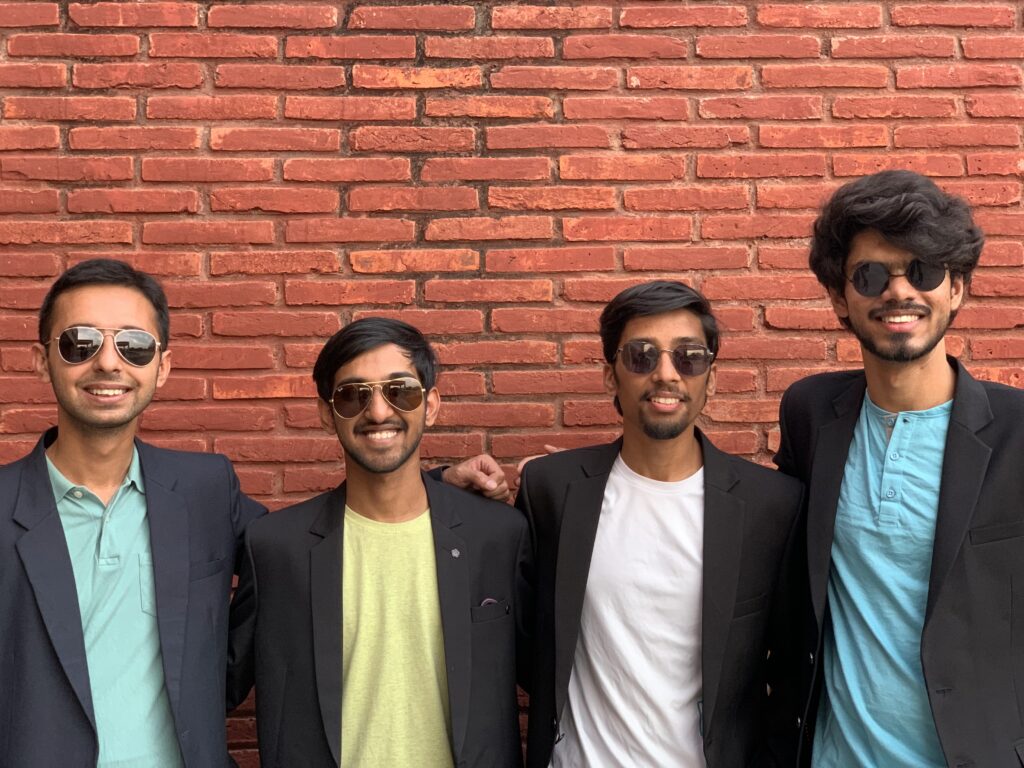
Before I start my AWL, I’d like to mention the thoughts running through my mind while making a first draft. I was told that not many people read AWLs, sometimes because they are not relatable and other times because the reader can’t draw any “useful” insights from the written account. To fix that, I plan to make most of my AWL “useful”—in ways that shall be clear in the forthcoming paragraphs.
My Academic Journey, Exploration, and Discovering Oneself:
First of all, a short note on my academic journey at IITK. During JoSAA, I had to choose between EE and MTH at IITK, and simply based on instincts, I decided to rank MTH higher than EE. As fate would have it, I decided to pursue an academic career in mathematics, a path taken by very few in general, especially in our institute. In my first year, I was hell-bent on changing my branch to CSE and making a shit ton of money. That did not work out, but I spent my first ~3 semesters studying many courses that would broadly fall under the umbrella of ML/AI and dabbling in competitive coding now and then.
Over time, I grew bored of ML/AI (partly due to what a mess academic research in these subjects has become) and lost all interest in coding; I was just interested in the theoretical aspects. So, to try something new, I decided to spend more time doing pure mathematics, and I liked it so much that I never turned back!
During my fourth semester, my disinterest in typical corporate life and most academic disciplines besides math became clear to me. So I decided to invest all my energy into pure math and to get into a good school for graduate studies (which worked out pretty well, I’d say.) In short, my career trajectory was very unpredictable during the first few years, and I found something I enjoyed doing only after investing significant time in its search.
I believe college life is an avenue for exploration to figure out one’s true interests—something that you shall, without second thoughts, enjoy doing for the rest of your life if you have to. It is a voyage of discovery, but this voyage is multifaceted and not limited to one’s career trajectory. It is a process of self-discovery and understanding one’s place and role in society as an individual. It is a time to unlearn and challenge one’s previously-learned notions and stereotypes. In this process, it is essential to ask questions and find answers.

Choose Your Path and Find Your People:
The majority of your IITK experience will be influenced by the people you spend most of your time with. Choose wisely. It might be challenging to find like-minded people but don’t feel pressured into being around people whose mindset and values don’t match yours, and don’t feel obligated to invest your time in activities that don’t align with your goals or that you’re disinterested in. Mieux vaut être seul que mal accompagné. (Better to be alone than in bad company.)
For instance, I never participated in any inter- or intra-hall events or club activities. I am not discouraging anyone from doing so; I am pointing out that it is not necessary to do what everyone else does, and it is okay to walk the road less traveled. Enjoying what you do is far more important than following the crowd. At IITK, I found very few people with similar interests and mindsets, but that did not deter me from pursuing my goals. In every batch, very few (almost none) MTH UGs are interested in graduate studies in pure math, and at least among students in the department, there isn’t a culture of engaging in insightful academic discussions. Regardless, most professors are pretty open to such chats, and I’m grateful to the department for its support over the years. I’ve also learned a lot from folks in academia outside of IITK, and I’d encourage reaching out to anyone you’re interested in working or chatting with. Never hesitate to write (but don’t write anything stupid) to anyone! Lastly, work so hard that you never regret not giving your best, and everything will work out in the end.
Why should one try research?
While research may not be for everyone, trying it out can provide valuable experience and help develop transferable skills. It is common knowledge that most IITK UGs never try research in any discipline and settle for the tried-and-tested route toward a typical corporate lifestyle. There is nothing wrong with this approach, and it works for many; however, I shall offer a different perspective. There is plenty to learn and gain from research experiences as an undergraduate, and if you do not intend to go to graduate school, this is pretty much the only phase of your life when you can experiment with research. Why regret not doing it later?
In my specific case, I did not understand the appeal of (mostly monotonous) corporate jobs (partly due to a certain lack of freedom). I wanted to challenge myself and grow constantly. My summer intern experience went quite well and solidified my commitment to an academically demanding career. Mathematics, in general, and research, in particular, help me escape the monotony of everyday life and feel mentally fresh. I believe everyone should have such experiences and that merely financial gratification can only provide short-term satisfaction in life. Whether or not you do research, it may be helpful to have a more profound sense of purpose in life beyond just fulfilling materialistic desires so that no matter the challenges life throws at you, you always have a foundation to fall back on.
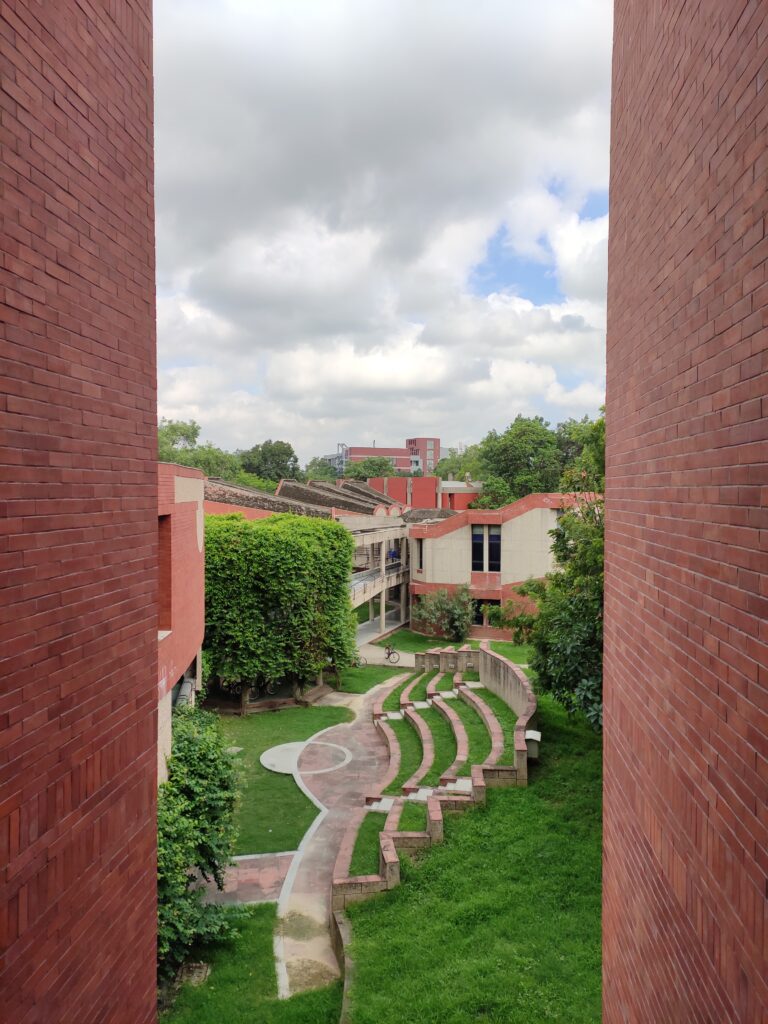
Academics at IITK:
I have noticed a weird approach towards academics in IITK (across batches), and I will present a perspective contrary to what might please most ears. I have seen plenty of students preparing for exams just a day or two before and skipping classes often. The result of it all, with high probability, is a bad grade on one’s transcript. In most cases, the students conveniently shift the “blame” to the instructor’s teaching skills and evaluation methods rather than mending their own ways.
I do not think anyone deserves to call a STEM class “hard” unless they pay constant attention and put honest, sincere efforts into reading the text and practicing problems. The truth is, no undergraduate class is particularly “tough,” and any reasonably smart person (as you’d expect anyone joining IITK to be) can get a decent grade in most of them with consistent effort. That being said, not everyone necessarily aims to get good grades in every course, and many students have other non-academic life goals, which is okay!
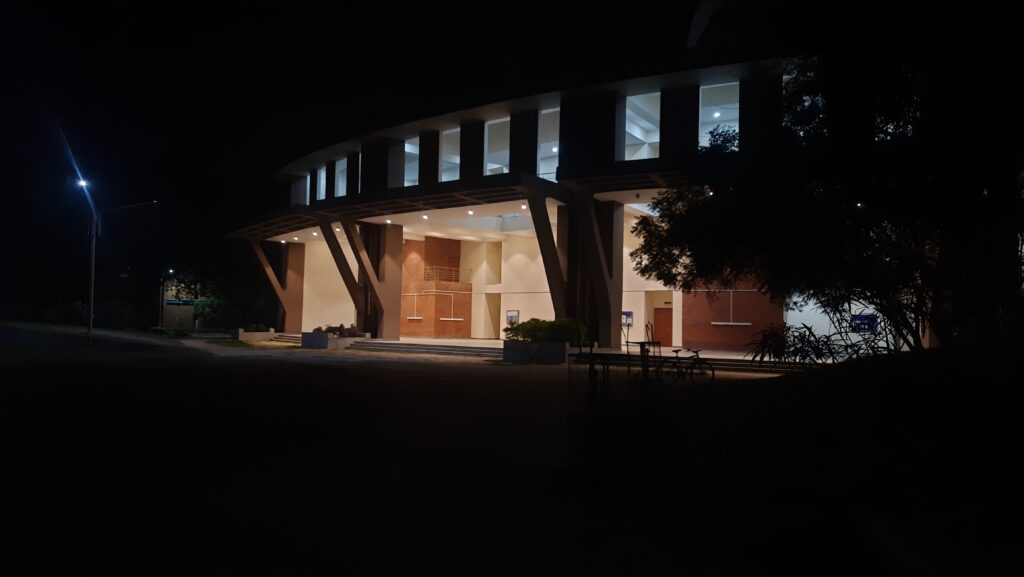
Le mot de la fin: Reflections on College Life and Graduating:
By far, this has been the hardest part to pen down. IITK taught me many things. First, I began to appreciate oubaitori, the Japanese concept of never comparing oneself. Everyone grows at their own pace and in their own way. We all step foot into IITK from a highly competitive environment, and as inertia would have it, it is challenging to grow out of this mindset as college life begins. However, college is when most of us try to figure out a career path for ourselves—an entirely individual choice. What makes most people happy may not make you happy, and it is up to you to listen to and follow your heart.
As Steve Jobs said, “Have the courage to follow your heart and intuition. They somehow already know what you truly want to become.” Many people talk about “finding oneself” during undergrad, but I think this journey is really about returning to who you truly are. Who are you beneath all the layers of social conditioning, cultural norms, and people’s judgments? I hope you, the reader, find an answer. Don’t let anyone tell you who or where you need to be by a certain age. You are exactly where you need to be right now!
College is where most of us make friends for life, and I’m grateful to have had the opportunity to interact with people from different backgrounds with varied ambitions and interests. Some of them are now the reason I call IITK home. On the flip side, though, I also learned a lot from the relationships that did not last. I genuinely believe that people come into our lives at specific times to teach us lessons about ourselves and the world around us. Not everyone is meant to stay forever, and that’s okay. In fact, it is this impermanence that makes life beautiful. If something lasted forever, would we really appreciate it? Perhaps this is why nature has seasons, too. I feel the same about my time at IITK; its impermanence helped me realize its true value.

Lastly, and perhaps the most important, is the unpredictable nature of life (at IITK or just in general.) One can never predict what life will throw at them, and at times, such surprises aren’t fun. Regardless, they are learning experiences. There will be times when you bike across campus to a friend’s impromptu birthday party, and there will be days when you find peace in your own company. Life never goes exactly as planned, and that’s alright. There are always new experiences to have, new people to meet, and memories to make when you least expect them. Time flies by; make the most of it while it lasts!

Written By: Rahul Sethi
Edited By: Vedanshi Aggarwal, Zainab Fatima





